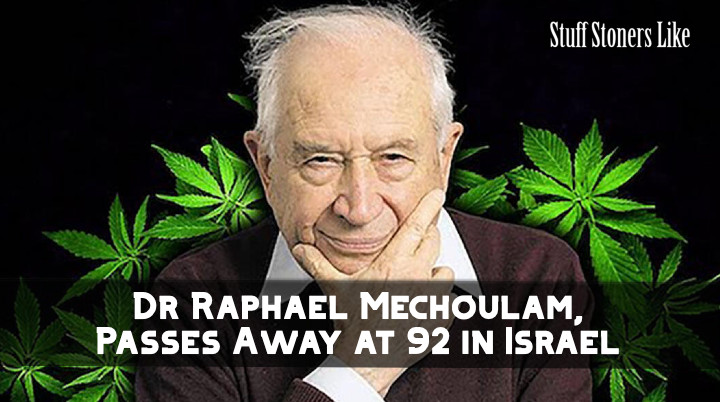
Dr. Raphael Mechoulam was an Israeli organic chemist and professor of medicinal chemistry at the Hebrew University of Jerusalem. He was a pioneer in the field of cannabinoid research and is known for his groundbreaking work on the chemistry and pharmacology of cannabis.
The Discovery of THC
In the 1960s, Dr. Mechoulam was one of the first scientists to isolate and characterize the structure of tetrahydrocannabinol (THC), the main psychoactive component of cannabis. This discovery paved the way for further research on the effects of cannabis on the human body and the development of cannabis-based medicines.
Identifying the Endocannabinoid System
Dr. Mechoulam’s research also led to the identification of the endocannabinoid system in the human body. This system is made up of a complex network of receptors and neurotransmitters that play a crucial role in regulating a wide range of physiological processes, including pain, mood, appetite, and sleep.
“He should’ve gotten the Nobel Prize,” says Fred Gardner, a friend of Mecholulam who has documented medical cannabis for decades. “I mean let’s face it—the Endocannabinoid system was a major achievement of our lifetime.”
Contributions to the Understanding of Cannabinoids
Dr. Mechoulam’s research has contributed significantly to our understanding of the therapeutic potential of cannabinoids. He has conducted extensive studies on the pharmacology of cannabis and its various components, including THC and cannabidiol (CBD). His work has helped to clarify the mechanisms of action of these compounds and their potential applications in the treatment of a range of medical conditions.
Therapeutic Potential of Cannabinoids
Dr. Mechoulam’s research has also shed light on the therapeutic potential of cannabinoids in the treatment of a wide range of medical conditions, including chronic pain, epilepsy, and multiple sclerosis. His studies have shown that cannabinoids can help to reduce inflammation, pain, and seizures, and may also have anti-tumor properties.
Awards and Recognitions
Dr. Mechoulam has received numerous awards and recognitions for his contributions to the field of cannabinoid research. In recognition of his many contributions to the field, Raphi received numerous awards and honors, including:
- Israel Prize in Exact Sciences – Chemistry (2000)
- Heinrich Wieland Prize (2004)
- NIDA discovery award (2011)
- EMET Prize (2012)
- Rothschild Prize in Chemical Sciences and Physical Sciences (2012)
- National Academy of Sciences Award in Chemical Sciences (2014)
- Harvey Prize (2019)
- American Chemical Society’s Cannabis Chemistry Subdivision’s Lifetime Achievement Award (2020)
- Honorary doctorates from Ohio State University, University of Guelph, Complutense University, and the Weizmann Institute of Science
Legacy and Impact of Dr. Raphael Mechoulam’s Research
Dr. Mechoulam’s pioneering research on the chemistry and pharmacology of cannabinoids has had a profound impact on the field of medical cannabis research. His discoveries have paved the way for the development of new cannabis-based medicines. They have also helped to shift the public perception of cannabis from a recreational drug to a legitimate medicine.
Future Directions for Cannabinoid Research
Despite the progress made in the field of cannabinoid research, there is still much to be learned about the therapeutic potential of these compounds. Dr. Mechoulam’s research has opened up new avenues of investigation. It has also sparked interest in exploring the potential of cannabinoids in the treatment of a wide range of medical conditions.
RIP Dr. Mechoulam
Dr. Raphael Mechoulam was a pioneer in the field of cannabinoid research. His groundbreaking work has contributed significantly to our understanding of the chemistry, pharmacology, and therapeutic potential of cannabis. His discoveries have helped to shift the public perception of cannabis from a recreational drug to a legitimate medicine. It has also paved the way for the development of new cannabis-based medicines. Dr. Mechoulam’s legacy will continue to inspire researchers in the field of medical cannabis for years to come.
Leave a Reply